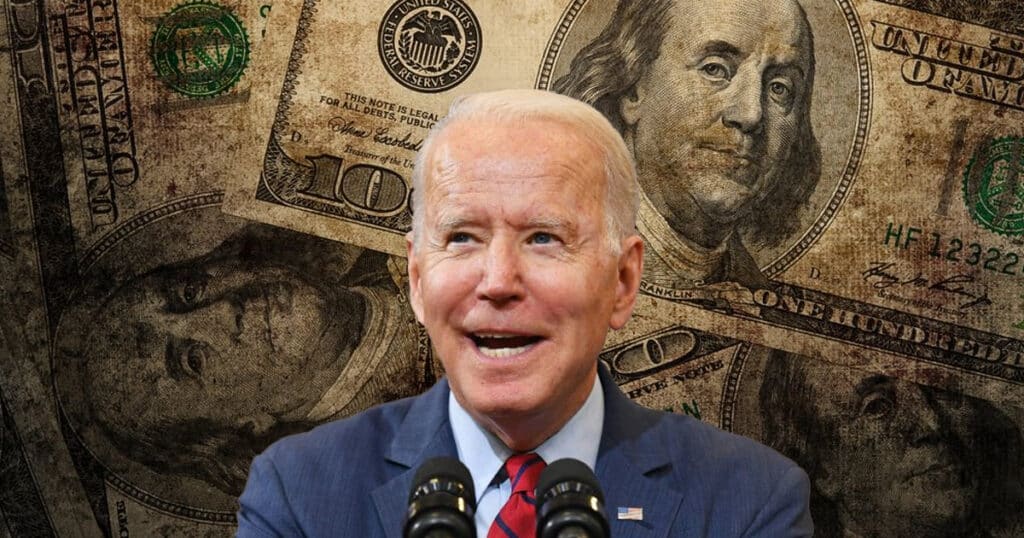
5 Charts Sum Up Biden’s Irresponsibility in Asking Congress for $106 Billion More
President Joe Biden has asked Congress for $106 billion in supplemental “emergency” funding, a proposal that contains several important policy flaws and threatens to drive the nation further down the road to bankruptcy.
Biden’s Sept. 20 request includes $61 billion for Ukraine, $14 billion for Israel, $13 billion for border security, $10 billion for global humanitarian aid, and $4 billion to address China.
To begin with, Biden’s supplemental proposal ignores Republicans’ request that he separate aid for Ukraine and Israel, since Americans are much more unified about supporting Israel.
The Biden administration’s response to the border crisis it created also hinges on showering left-leaning nonprofits with taxpayer dollars, which would do nothing to address the underlying causes.
An aspect of the spending request that likely will get little (if any) attention from the mainstream press is the administration’s casual choice not to cover any of the cost of this $106 billion package, meaning it would be pure deficit spending.
Washington’s reckless, $7.5 trillion spending spree from 2020 through 2022 is having a disastrous effect on the economy. American families still suffer from persistent inflation caused by the glut of deficit spending, rising interest rates make it unaffordable to buy a home, and interest rates on the national debt are spiking.
Investors have good reason to be concerned about how safe U.S. debt securities are. The Fitch credit rating agency downgraded its assessment of federal finances in August, citing the complete breakdown of fiscal responsibility.
It helps to visualize just how out of whack things have become.
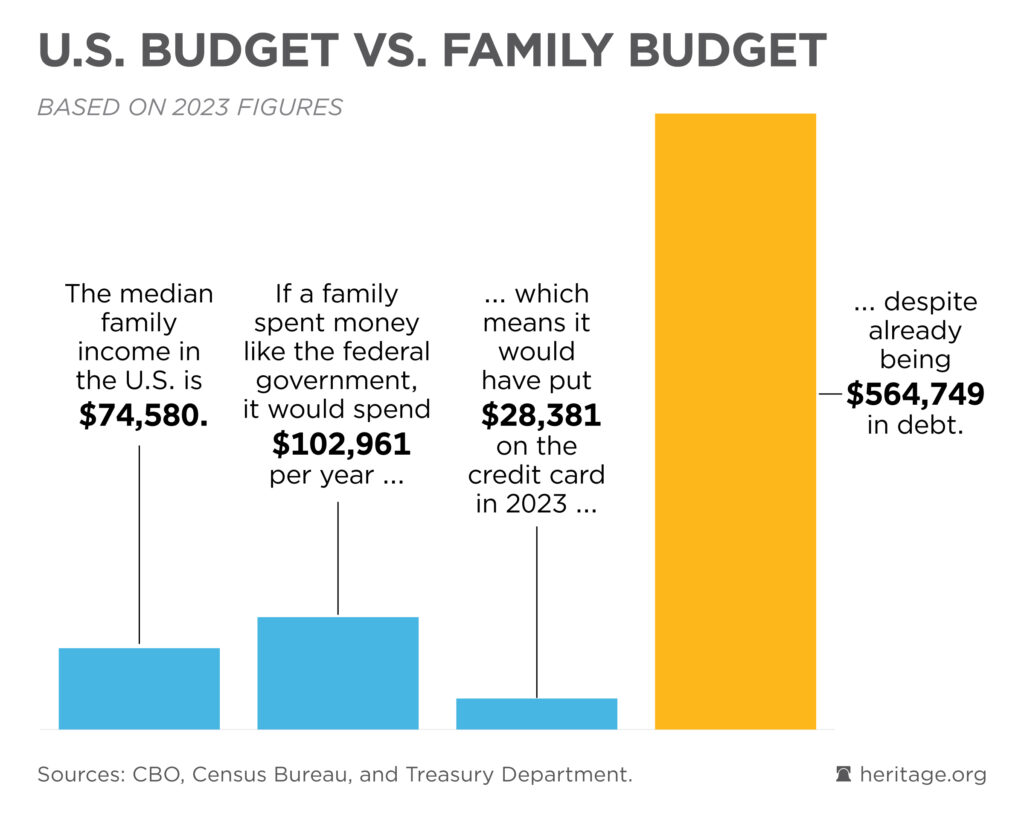
Despite the end of the COVID-19 pandemic, Washington still racked up an astonishing $1.7 trillion budget deficit in 2023. This would be like a typical family adding $28,381 in debt while ignoring the $564,749 in debt it already had.
Things only get worse as we look toward the future.
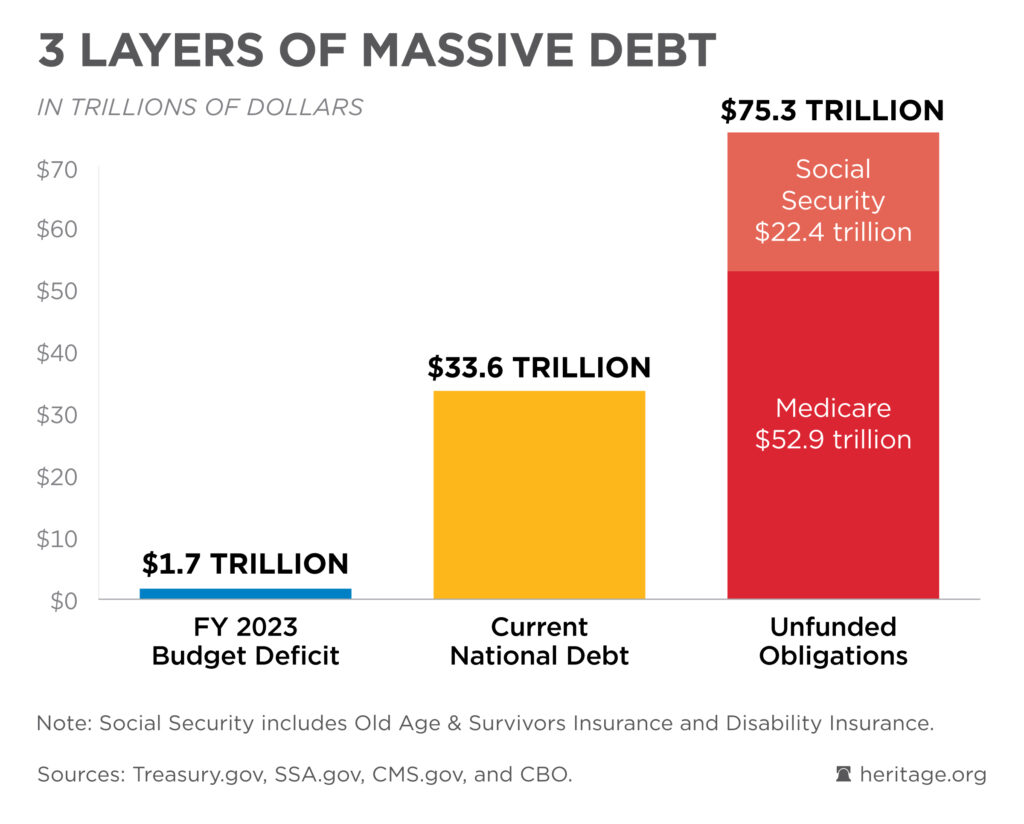
The current gross debt of $33.6 trillion means that the share of debt for each U.S. household is over $258,000. Worse, because Congress has ignored the finances of Social Security and Medicare for years, the programs have a combined $75.3 trillion in unfunded liabilities—or roughly $579,000 for every household.
That adds up to $837,000 in federal debt and liabilities per household, and few leaders in Washington are willing to even acknowledge that the problem exists.
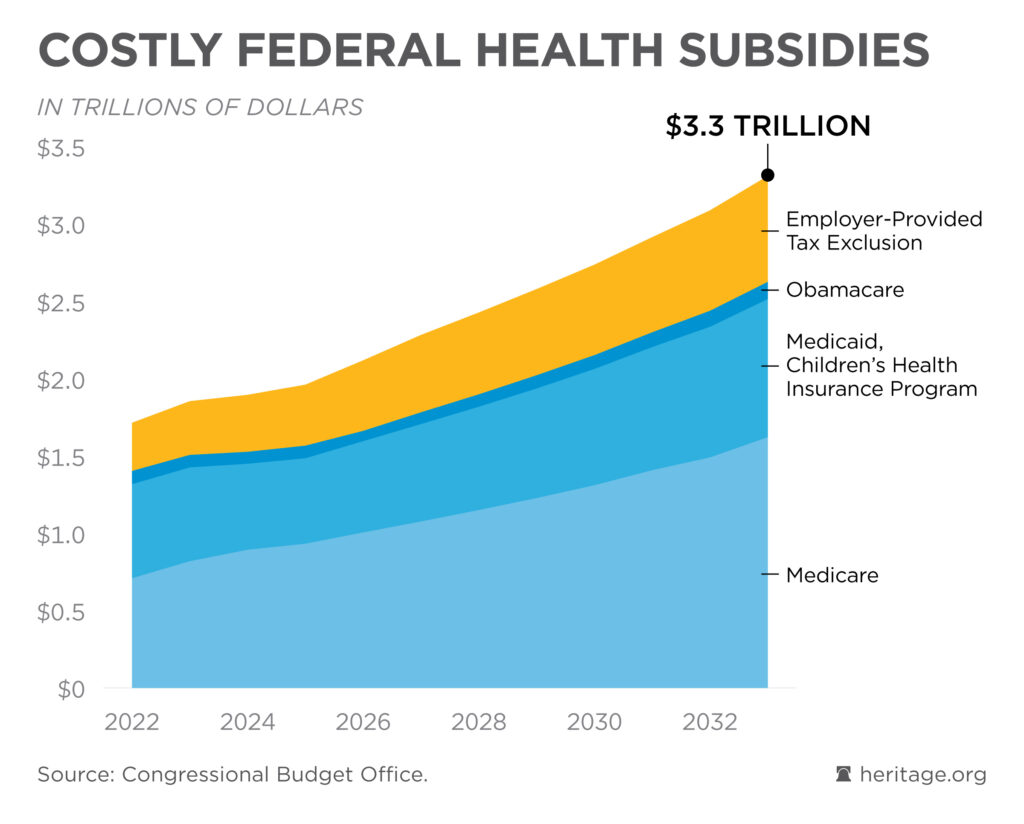
By far, the policy area with the largest effect on the federal government is health care. Programs such as Medicaid and Medicare, along with preferential tax treatment for employer-provided health insurance, cost $1.8 trillion in fiscal year 2023.
Incredibly, the cost of these provisions is set to nearly double over the next decade, reaching $3.3 trillion in 2033.
Many reforms are available to slow the growth of federal health spending and prevent Medicare from going bankrupt, but sadly little appetite exists among elected officials to tackle this mounting crisis.
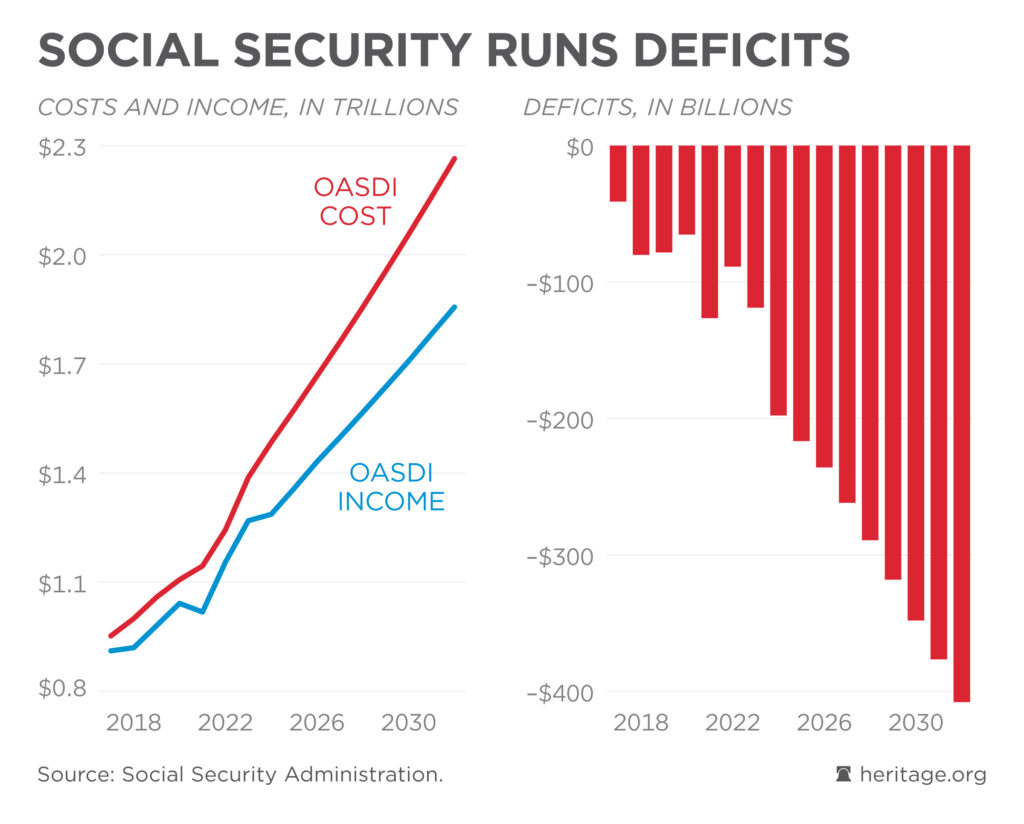
The picture is similarly bleak for Social Security. Despite strong and growing revenue from the payroll tax, the program’s deficits are on pace to explode over the next few years, driving it to bankruptcy by 2033.
If that happens, America’s seniors would face an immediate 23% cut in benefits.
Considering the mountainous national debt, the unsustainable nature of Social Security and health care subsidies, and the surge in interest rates, this would seem to be a bad time for Uncle Sam to put another $106 billion on our shared credit card tab for Biden’s supplemental request.
The president’s request is yet another example of the swampy approach to spending: Because politicians use other people’s money, they aren’t concerned about the consequences of overspending.
This is Washington’s business-as-usual mindset in action. The nation’s leaders could draw on hundreds of available policy reforms to cut waste and inefficiency to cover the cost of the supplemental package.
If supporters of this spending genuinely believe it is worthwhile, they should be willing to make the case for which low-value programs Congress should cut to make room in the budget for the spending.
Instead, the Biden administration and its allies would rather avoid upsetting any special interests or established bureaucracies that would be on the wrong end of badly needed deficit reduction. Thus, they want to use the “emergency” designation to avoid any budgetary discipline whatsoever.
It’s a shameful way to run the country.



